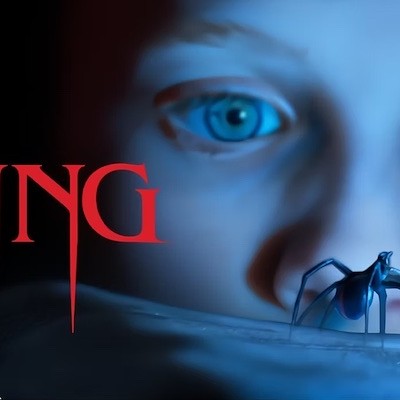Before I begin dissecting my own interpretation of Fitzgerald's The Great Gatsby and why Hollywood will never make a cinematic masterpiece from the source material, I'd like to say that Baz Luhrmann's film is much better than the 1974 Robert Redford vehicle. It's all glossy fun and games, but that very well might also describe Fitzgerlald's novel. The story is certainly a parable of the American spirit of determination, but at the end of the day, it's about just another guy chasing just another girl.
And that's where Hollywood gets stuck. The Jack Clayton version sentimentalized the core love story to the point of sap, while Luhrmann is focused on the frenzied social backdrop that produced the nouveau riche Gatsby. The latter approach is by far the more entertaining, but it still doesn't come close to addressing why The Great Gatsby is considered by some to be an epitome of American fiction.
Nick Carraway is part of this problem. Both films treat the character as a disposable device for presenting the romance between Gatsby and Daisy Buchanan. The result is that both Sam Waterson's and Tobey Maguire's Carraway are annoying bystanders that seem to be getting in the way of a much more interesting story. The problem of Nick is why The Great Gatsby will never be a great film.
I'm guessing Hollywood people are not literary scholars, which is perfectly fine. Neither am I. But as someone who has read the novel as a grad student, I do know that the reason why Fitzgerald's work is seminal reading is because of what he's doing with the character of Nick. With this character, Fitzgerald has created the zenith of the unreliable narrator, a literary device film producers do not seem to understand.
In the opening chapter, Nick shares his father's advice of not judging others. "In consequence, I'm inclined to reserve all judgments, a habit that has opened up many curious natures to me and also made me the victim of not a few veteran bores." In one sentence, Nick asserts himself to be a non-biased party, yet, sees fit to pronounce certain of his acquaintances as "curious" or "bores."
And in case one hasn't seen the movie or read the book, Nick acts as an observer of the shrewdest sort. He makes opinionated pronouncements left and right, making villains of his cousin Daisy and her husband Tom without any real window into their personal interiors. What about one of the novels greatest lines? "You're worth the whole damn bunch put together," he tells Gatsby. Sounds pretty judgmental to me.
This is a problem because the reader cannot trust what Nick is saying. Why, exactly, is Gatsby great? Because Nick says so, and who is Nick other than an obsessed fanboy with an opinion? Without Nick's carefully filtered valence, the facts stand crude and unattractive. Gatsby is a crook in a nice suit, not a hard-working Horatio Alger character. Nick also spins Gatsby's quest for Daisy in the most romantic light possible, in turn making Daisy a villainess when she decides to stay with her husband Tom rather than run off with the King of West Egg.
However, Gatsby does not really love Daisy. Much like the green light on the pier that Gatsby is constantly reaching for, Daisy is symbolic of the aristocratic life he has craved since his impoverished childhood. Through manipulation and deceit, he has acquired the material possessions of an American prince. The last thing on his checklist is Daisy, the young belle of a prominent Louisville family who was out of his reach as a penniless soldier on the cusp of battle. He does not see Daisy as a person, but as an object to be acquired. Nick does not see this, or is not interested in seeing this, and construes her in a negative light for the benefit of his squeaky clean projection of Gatsby.
Which begs the question, how does Nick benefit from his connection to Gatsby? Well, that is an interpretation for the individual reader. But in my opinion, their relationship is more than a Jazz Age bromance. Gatsby is everything Nick will never be: wealthy, successful, charming, alluring, sexy. Gatsby is the man that Nick wants to be, and Nick, wide-eyed and boy-faced, craves it. He wants Gatsby for himself, and cannot comprehend why Daisy would ever rebuff him.
His hatred of Tom is equally warped. He rightfully disdains Tom's philandering ways, his conspicuous sense of power and entitlement. But he fails to see that Tom's love of Daisy, however abusive, is real. Gatsby's love for her is imaginary, rooted more in fantasy than in the precious moments that make life matter. All this sense of hope that Nick sees in Gatsby is smoke and mirrors. The man is a good imitation of a gentleman at best, but he's still an imitation.
Luhrmann got it right when he placed Nick in a mental institute, but it shouldn't have been for alcohol abuse. Nick is a man obsessed. Just like Gatsby never had a chance with Daisy, Nick never had a chance with Gatsby. Nick is bitter, and in his bitterness he creates the fiction of Jay Gatsby. If there is ever another movie adaptation, the director needs to shuck the character of Nick altogether. Then again, Nick might work, but only if he is played as man as sinister as the supposedly great Gatsby whom he loves.





